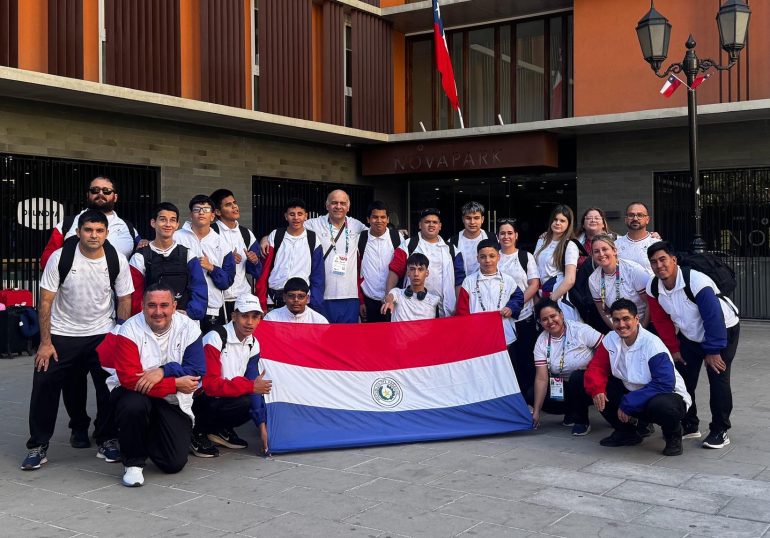Paraguay is set to make history at the Youth Parapan American Games in Santiago, Chile, fielding its largest-ever delegation with twelve young para-athletes. The competition is an international multi-sport event for athletes aged 12 to 21 with physical disabilities. The team’s participation marks a defining moment for Paraguay’s growing Paralympic movement and a significant step towards inclusive sporting excellence.
As Team Paraguay is competing in Santiago until 8 November 2025, the country’s Paralympic spirit continues to grow stronger, setting a hopeful example for future generations of athletes.
A growing Paralympic movement
The athletes, aged between 14 and 20, will compete in para-swimming, para-athletics, and blind football, three disciplines that showcase both skill and perseverance. Their presence reflects the rapid expansion of adapted sports in Paraguay. The team is led by the Paralympic Committee of Paraguay (Comité Paralímpico Paraguayo) with strong institutional backing from the National Sports Secretariat (Secretaría Nacional de Deportes, SND)
Founded in 2017 under Professor Higinia Giosa, the Committee has become a driving force for athletes with disabilities. The current president, Dr. Juan Manuel Fernández, highlights that this historic delegation demonstrates how far the movement has come in less than a decade.
“We are very motivated by this participation,” Fernández said. “We have one athlete in para-athletics, three in para-swimming, and eight in blind football. The latter is a discipline that we have managed to develop after years of effort. Mostly through a partnership with the National Union of Visually Impaired Persons (Unión Nacional de Personas con Discapacidad Visual), led by Dr. Alexis Duarte.”
Building experience and visibility
For Fernández, the main goal in Santiago goes beyond podium finishes. For him, participation itself is an achievement.
“Of course, we always hope to win medals. But what matters most now is for Paraguay to have an international presence. This way, more people and organisations become involved in developing para sports nationwide.”
According to Fernández, this visibility is essential for sustaining growth. The Committee is working to ensure that each para sport gains official recognition. In addition, long-term support structures that pave the way for a stronger Paralympic programme.
Preparation and dedication for Parapan Youth Games
Preparing for the Games has been an extensive, collaborative process. The Committee received assistance from the SND, which offers scholarships to some athletes. Also, from international bodies such as Américas Paralympic (AmPC) and the International Paralympic Committee (IPC).
“What truly sustains us, is the voluntary work of coaches, doctors, and officials who dedicate their time to para sports. Thanks to them, we can achieve solid preparation for our athletes.”
Blind football, one of the most socially impactful disciplines, trains daily with the support of the Unión Nacional de Personas con Discapacidad Visual. The team’s perseverance embodies the values of teamwork, confidence, and inclusion.
Challenges ahead
Despite progress, challenges remain. Fernández pointed out that expanding adapted sports nationwide depends on greater cooperation. Not only between public institutions and sports federations, but also in training more specialised coaches.
“A key difficulty is finding coaches willing to take on the challenge of working with athletes with disabilities. We need continued support from national federations, the Olympic Committee, and the National Sports Secretariat.”
The Committee also aims to strengthen talent identification programmes to move from recreational participation to elite competition, ensuring that future generations continue to represent Paraguay in the Paralympic cycle.
Representing Paraguay with pride
The delegation, besides the Committee President Dr. Juan Manuel Fernández, includes Laura Medina (athletics), Sergio Iraira and Paola Quiñónez (swimming), and Alex Chávez (blind football coach), among others. Their journey symbolises more than athletic effort; it represents the collective work of institutions, families, and volunteers committed to inclusion through sport.


